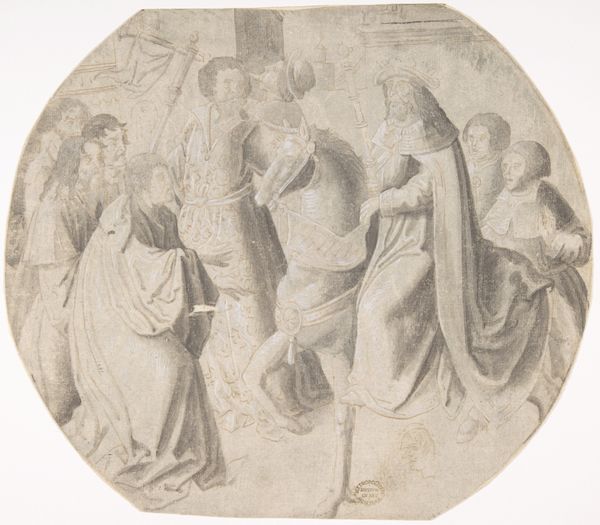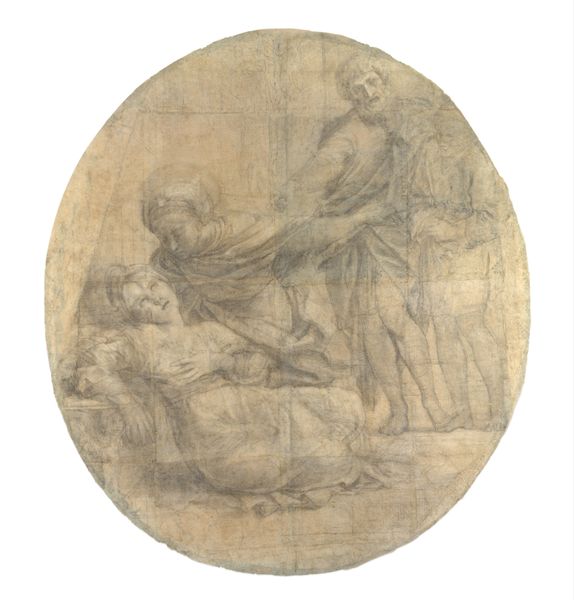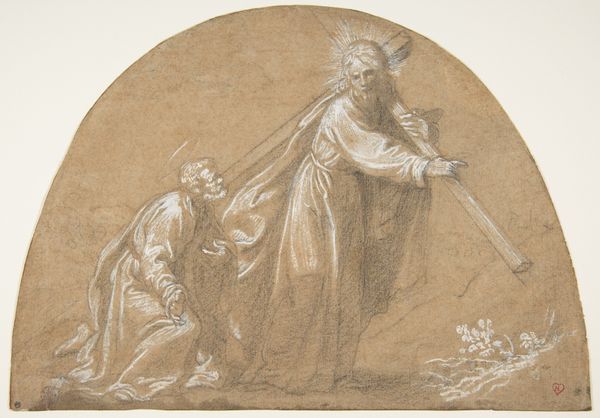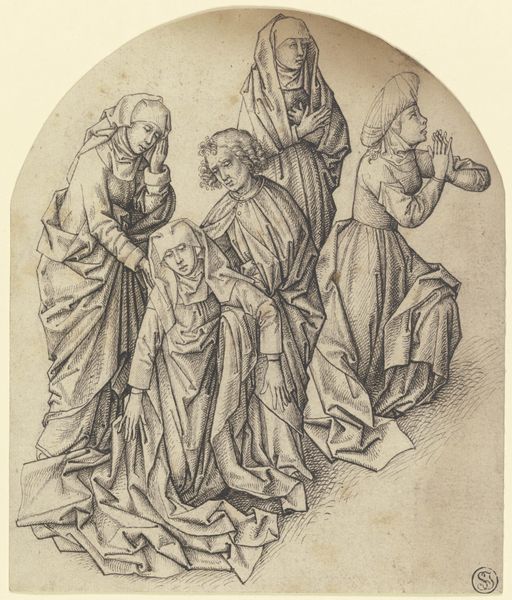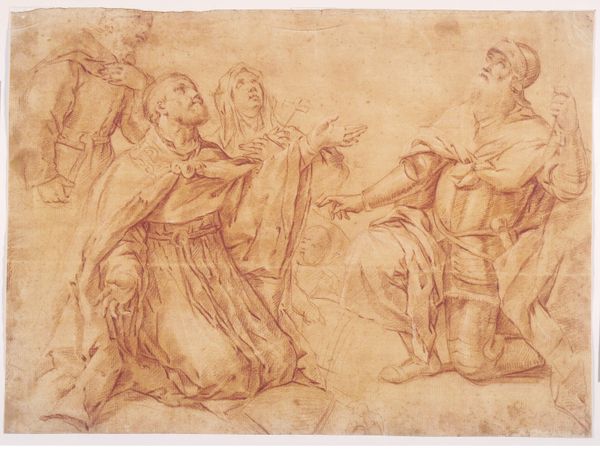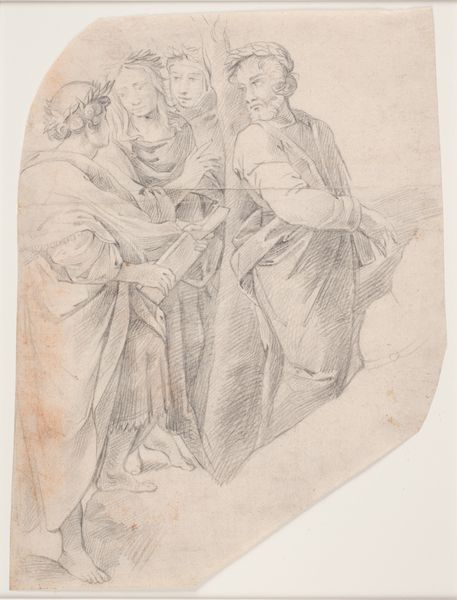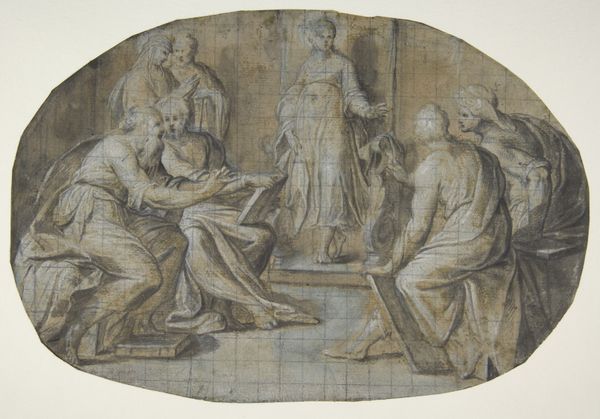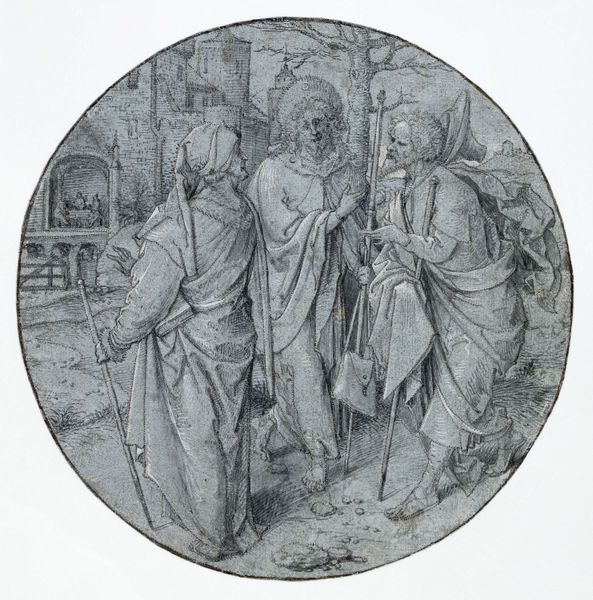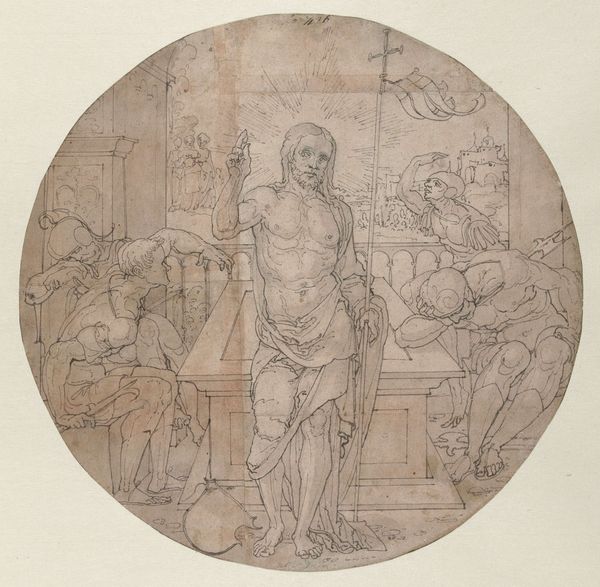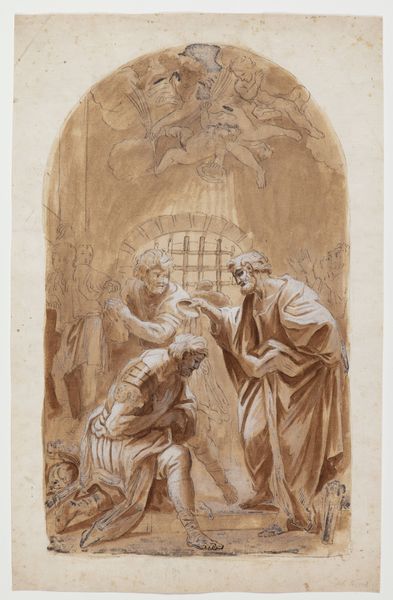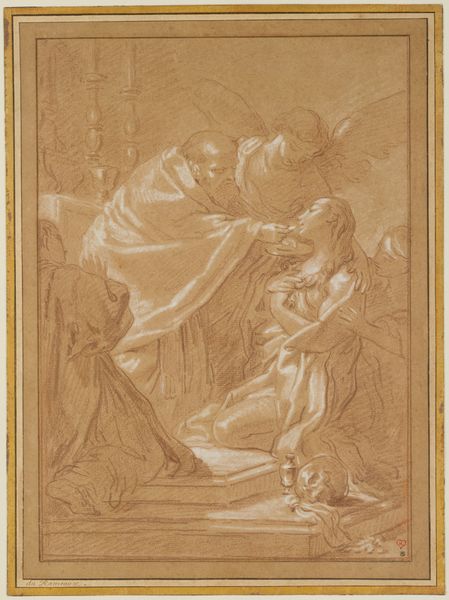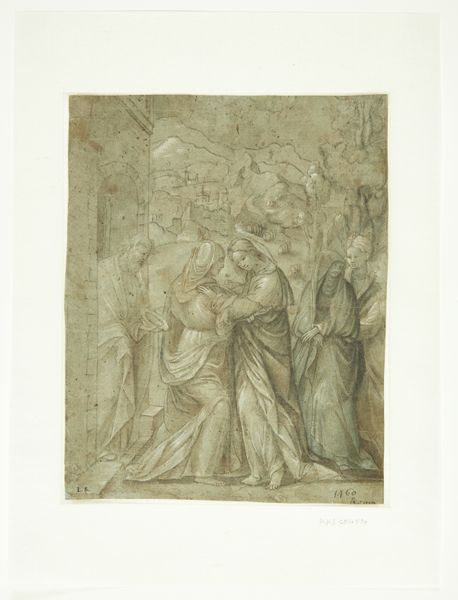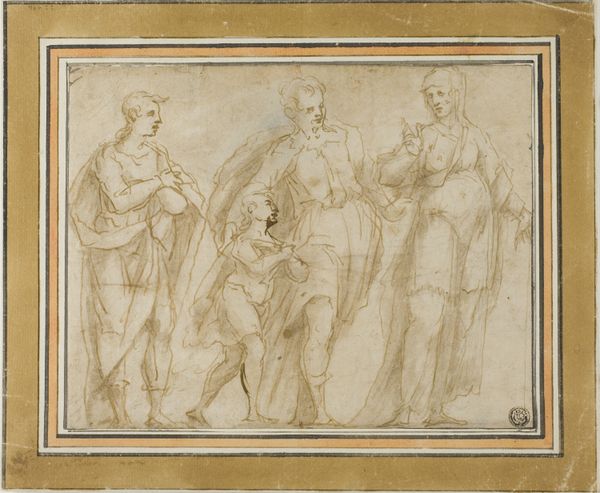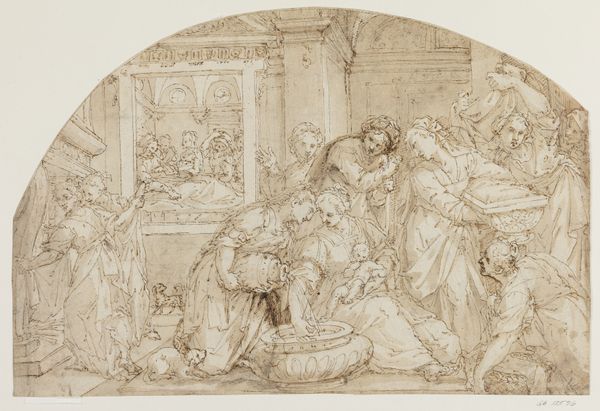
Swooning Woman at the Door of a Nunnery, Supported by Nun and Young Man n.d.
0:00
0:00
drawing, paper, chalk, graphite, charcoal
#
drawing
#
narrative-art
#
charcoal drawing
#
figuration
#
paper
#
charcoal art
#
pencil drawing
#
intimism
#
chalk
#
graphite
#
charcoal
#
history-painting
#
academic-art
Dimensions: 123 × 124 mm
Copyright: Public Domain
Editor: This is "Swooning Woman at the Door of a Nunnery, Supported by Nun and Young Man," a drawing by Benedetto Pastorini. The figures, rendered in charcoal, chalk and graphite on paper, are really striking and elicit a theatrical emotional state. I'm particularly drawn to the way the figures interact in a moment of crisis, with such expressive gestures. How would you interpret this work within its historical and social context? Curator: It's interesting you pick up on the theatricality. This work participates in the visual culture of its time by presenting us with a rather dramatic scene laden with meaning. Consider the setting: the doorway to a nunnery. In 18th-century Europe, convents weren't just places of religious seclusion; they were often repositories for women who, for various reasons—lack of dowry, family disgrace, or unwanted pregnancies—were pushed to the margins of society. Editor: So, this isn’t just about religious devotion? It’s also a reflection of societal pressures on women? Curator: Exactly. The swooning woman could represent a variety of societal ills: a fallen woman seeking refuge, or perhaps someone forced into a religious life against her will. The supporting figures – the nun and the young man – add to the complexity. Are they compassionate caregivers, or complicit in a system that oppresses women? What roles are men and women playing out here? The narrative invites us to consider the limited options available to women, and the power dynamics at play in the 18th century. Also, what purpose do you think this drawing may have served? Editor: Perhaps it's a study for a larger painting, or even a commentary on these social issues made accessible through art. I now see the nunnery’s door less as a sanctuary and more as a point of no return, shaped by cultural forces. Curator: Precisely. It makes one consider what is expected, what is hidden, and who is included and excluded from the social gaze. This makes Pastorini's artwork all the more compelling.
Comments
No comments
Be the first to comment and join the conversation on the ultimate creative platform.
